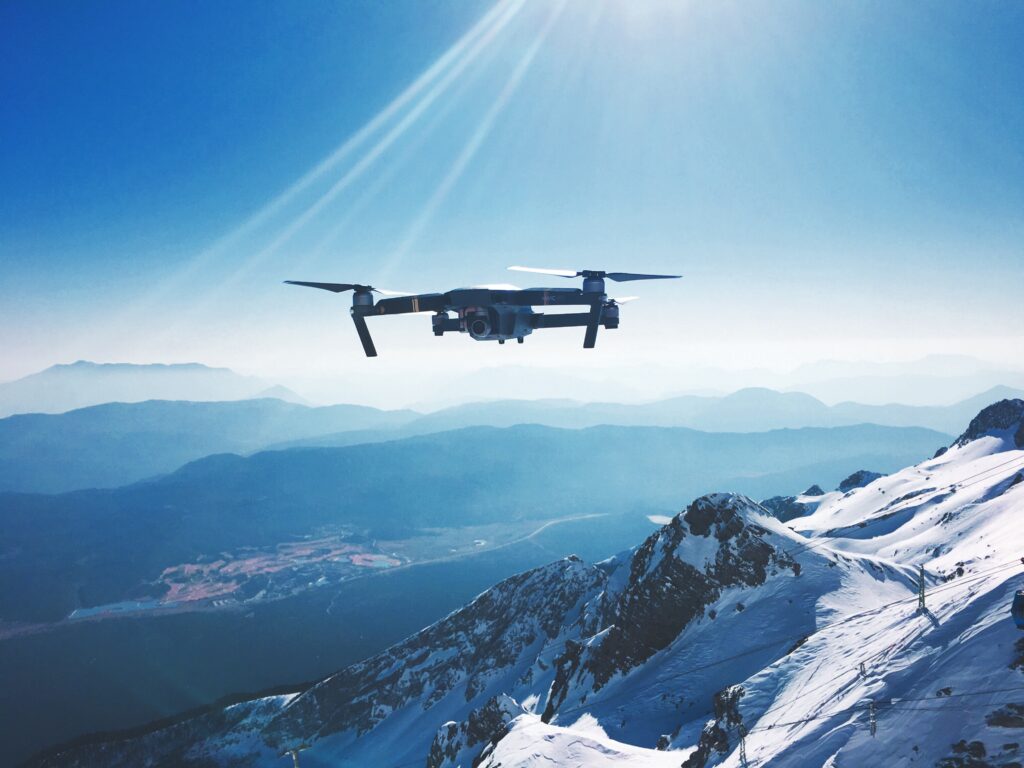Drones, also known as unmanned aerial vehicles (UAVs) are remotely operated devices that are currently being used in many industries, such as warfare and defence, but also many others. They are becoming more and more popular because of their affordability and utility. Military drones are prevalent, due to their many possible uses and purposes, e.g. target decoys or research.

What types of military drones are there?
The military has different kinds of drones for different missions. For example, the fixed-wing drone is the fastest drone there is. These types of drones use wings instead of rotors for take-off. Single-rotor drones are the most durable and are look-wise similar to helicopters, whereas multirotor drones are definitely the best choice for surveillance because they provide the best control over positioning.
What are some of the uses of these drones?
These vehicles revolutionized the way wars are fought due to their easy target acquisition, precision strikes, intelligence gathering, logistics and supply, as well as combat operations. They can easily locate and track targets, which has eased military decision-making and planning. Other than that, they provide real-time awareness of the situation on the battlefield, which allows the military to make greater decisions and react more quickly. They are the biggest AI-powered revolution in the aerospace industry so far.
Drones have also enabled the military to perform operations in a more secretive way, but they also enhance the safety of soldiers in higher-risk missions. They can reduce casualties because they gather enhanced intelligence about the positions on the enemy’s side. The remote operation that drones offer allows the military to reduce the need to be physically present in high-risk situations.
The advantages and disadvantages of using drones in the military
As already said, drones provide great accuracy in target acquisition. They can fly lower and slower than helicopters and planes and therefore identify targets more easily. They provide safety for military personnel, which enables fewer casualties. Also, they improve situational awareness due to the equipment of sensors and infrared cameras that provide real-time information on the movements and locations of everyone involved. They reduce the risk of injury and death because they can be used to perform missions that are too dangerous for humans.
The biggest disadvantage of military drones is definitely their price because while they are initially not extremely expensive, the cost of maintenance and repairs can be rather high. Also, although drones provide a variety of surveillance, they still depend on human operators. Other than that, there is also the ethical dilemma of using drones in warfare because there can be unintentional civilian casualties. This is surely the biggest concern.
How will drones impact future wars?
Since their development, military drones are only getting better and better. Still, some options can be made more sophistically, such as fully autonomous flights which don’t require any human assistance, but have pre-programmed flight paths. Also, 3D mapping can be improved and assisted by built-in AI to improve search and rescue.
There has recently been a growing trend of drones in military exercises, which are extremely important because they are the way for soldiers to improve their tactics, and skills and test all the equipment. They offer many advantages compared to the traditional methods of training and are very likely to play a great role in modern warfare and modern military exercises.
